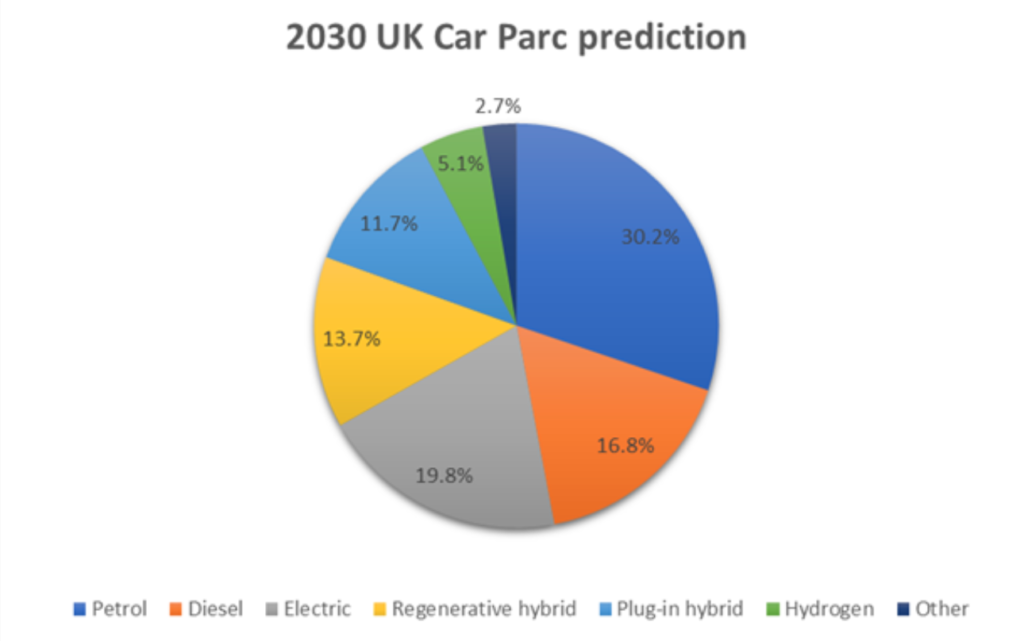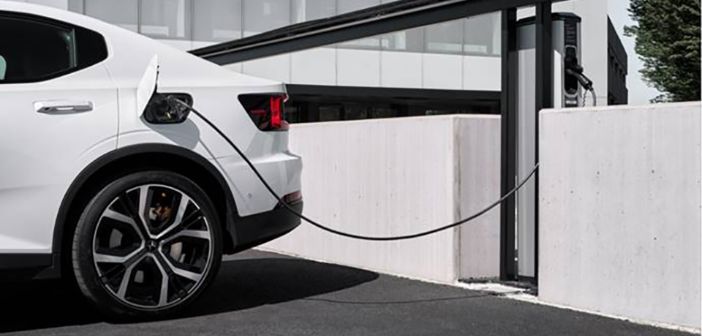EVs will outnumber diesel cars on UK roads by 2030, according to a survey by British motoring association the AA.
The study found that, in time for the UK government’s 2030 ban, on new petrol and diesel vehicle sales, a fifth of all cars on the road will be electric accounting for 19%.
However, according to the AA’s research, petrol will remain the most common fuel type in 2030, representing 30% of cars on UK roads.
The drivers surveyed also said they believed hybrid technology and alternative fuels, such as hydrogen and bio-diesel, will become more widespread.

Edmund King, AA president, said: “Over the next nine years, electric cars could supercharge the way we drive. There is clearly a desire from drivers to own them. EVs will play a significant role in the future.
“Everything is working in favour of electric cars. The range of a single charge in constantly improving, the purchase and leasing prices are becoming more affordable, more models and styles are reaching the market and investments in charge-points are being made.
“EV technology has the ability to unlock much more than greener motoring; providing the chance to create new jobs and opportunities. More should be done to spark the EV revolution, such as scrapping the VAT on electric cars costing less than £50,000 and the construction of numerous giga-factories.”
The study predicted that, if approximately 33 million cars remained on UK roads between now and 2030, there would be a swell of electric cars from 91,000 to 6.5 million.
Meanwhile, pure combustion vehicles would see a dramatic decline of 16.6 million cars. Should these predictions prove correct, manufacturers would need to ensure they can fulfil the oncoming demand, the AA said.
Ford and JLR have already committed to all-electric passenger vehicle line-ups by 2030, as reported by CiTTi in February.





